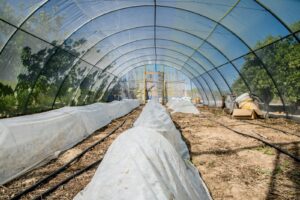Babies born to mothers exposed to extreme rainfall shocks are smaller due to restricted foetal growth and premature birth, according to a new study published in the journal Nature Sustainability.
Researchers from Lancaster University and the FIOCRUZ health research institute in Brazil analysed all the live births over an 11-year period in 43 highly river-dependent municipalities in Brazil.
For these 291,479 births, the researchers analysed how birth-weight, foetal growth and pregnancy duration were affected by local rainfall variability during pregnancy.
They found that extremely intense rainfall was associated with an average birth-weight reduction of nearly 200 grams.
Although the reasons behind this lower birth weight remain uncertain, the researchers have highlighted that major rainfall can extremely disruptive to people’s lives, with related stress and anxiety contributing to premature birth.
As climate change continues to worsen, the researchers have highlighted that mothers and babies will continue to face health risks. For example, failing crops will mean reduced access to nutritious and affordable food and increased rainfall will expose poorer households to water-borne diseases and creating ideal breeding conditions for mosquitos, leading to outbreaks of malaria or dengue fever.
Dr Luke Parry of Lancaster University’s Environment Centre and one of the authors of the report said: ‘Our study found climate extremes were adding another layer of disadvantage onto babies already facing a poor start in life.
‘Due to the deep social inequalities in the Brazilian Amazon, children born to adolescent indigenous mothers with no formal or little education, were over 600 grams smaller than those born into more privileged households. Extreme weather placed a further penalty onto these newborns.
‘Reducing the health risks found by the team will require much greater investment into poverty alleviation and better healthcare if we are to help Amazonia’s river-dwelling populations adapt to changing rainfall patterns and increasingly frequent and severe floods and droughts.’
















